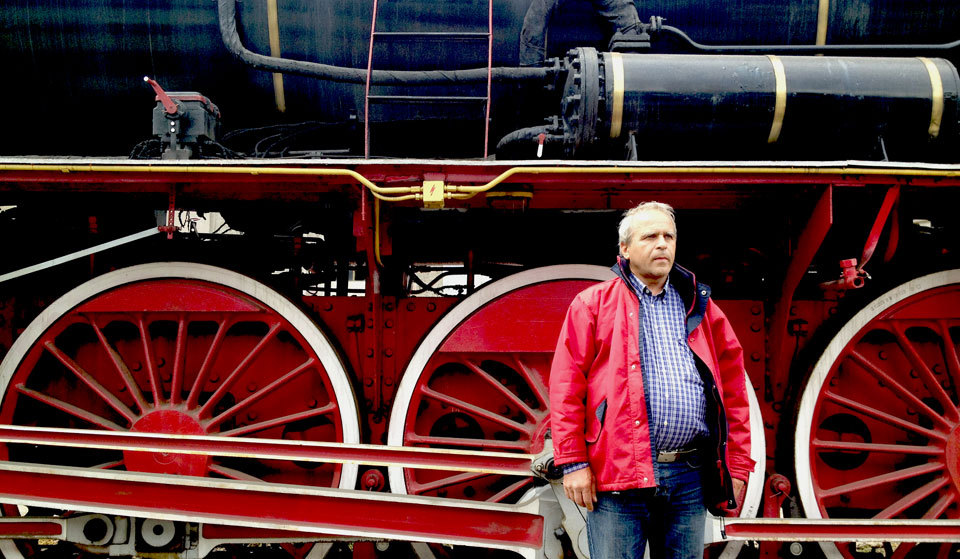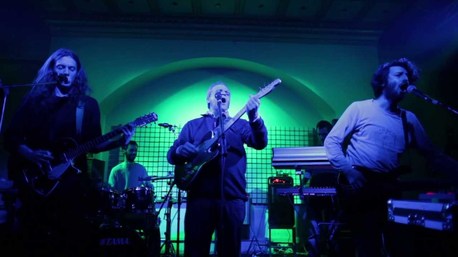Written by:
Tudor Runcanu
Share article:
In the beginning
Tudor Runcanu: How did you start making music?
Rodion Roșca: The first recordings I ever did were made on a Duo Tesla magnetic tape recorder and I didn’t have much, only a guitar and some sort of drums. But I would also use my palms to create a beat by tapping my knees, where I had placed a microphone, the only one I used in the 70’s to record voices too, a small Grundig. I recorded the tracks rather to keep the melodic lines, and later, when I would have the time, to develop them. By overprinting, I taped the voice on the recorder’s other track and most times the voice and the guitar didn’t sync perfectly because I couldn’t listen to what was previously recorded. There was a time delay and I had to figure out what was the tempo’s latency memory. With time I became a pro in fitting the lyrics in the song.
T. R.: Did the tracks have a decided structure from the beginning?
Rodion: Ideas were spontaneous. What was interesting is that after I would tape the tracks as an idea, I had a great advantage with overprinting and I would seek a formula that would sound good, templates like Smoke on the Water. I had a lot of ideas and I really wanted to store them, by all means. Shortly, I taped them so that I could come back and add this or that. From 1970 to 1978 I recorded countless tracks, maybe over 60. I burned and destroyed quite a lot of them when I had a fight with the girl I composed them for. Afterwards, the ones I could still remember I re-taped. This is how tracks like Stele şi lumini or Raze were remade.
Around ’75, when I was still at the Bariţiu highschool, I had 30 tracks done, head to tail, as a structure. They had guitar, drums and voice. However, even if I didn’t have a synthesizer, I discovered some effects by over-modulating the guitar and distortion. If I had to compose a theme for a song, I would set the tape machine on recording, with stop, I would play the sound on the guitar and then release stop. This was the solo’s first sound. Then I would stop it and play the next note the same way. Although it seems ridiculous now, this is what I would do. Then I could repeat that taped sequence as many times as I wanted. It was interesting that while releasing the stop button, there would be a sort of a “squeaky “ weird sound that is typical for synths. Thing is, the tape machine wouldn’t start on time, so that’s where the sound was born, that I would later put through an echo effect.
T. R.: Did you use multiple tape recorders simultaneously?
Rodion: At first I had only one, then I started using two. Then I bought Sonet D4 and B100, with which I attained my best works. After I would record the theme, I would come back and sing a third. This way, the song would become very, very broad. Then came the beats, the voice and the choir…and then I would come back to the leitmotif. That was about it, the composing method. At the end I would double the recording, with a little shift, and I would get a flange effect or a phase shifter, all in microseconds. You wouldn’t notice because apparently everything was the same, but there were new sounds that would come out depending on how the tapes would align.

